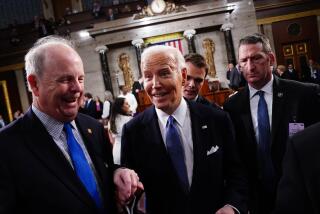The legacy of ‘H.M.’
In the Era of Alzheimer’s, when more of us are living long enough to develop dementia, loss of memory is perhaps the most dreaded mental disability, but there is some consolation in that it usually accompanies advanced age. Imagine a man -- a young man -- who lost his memories every 20 seconds.
Actually, scientists don’t have to imagine such an oddity. In 1953, an auto mechanic named Henry Gustav Molaison underwent an operation to stop his seizures. After the surgery, he manifested “profound amnesia,” which rendered him incapable of holding onto an experience.
For the rest of his life, Molaison -- known to readers of medical journals as “H.M.” -- helped researchers explore the neurobiology of memory. He played a crucial role, for example, in the determination that there are two kinds of memory governed by different sectors of the brain. One involves rote tasks, the other experiences with other people.
Molaison died earlier this month and inspired some, if you’ll excuse the expression, memorable obituaries. Part of the interest in his disorder is the fascination with what is not only freakish but also frightening. Good or bad, memories are a part of us -- an inseparable part, we like to think. But what if that isn’t so? What if we’re all potential H.M.s?
The great theologian St. Augustine thought memory was inextricably linked to the other mental attributes of will and understanding. “These three are one,” he wrote, “one life, one mind, one essence.” Stripped of memory -- the back story, as they say in Hollywood -- it’s hard to understand the present or to will future action. Molaison could have told you that, if his life hadn’t been evidence of it.
Like other victims of neurobiological trauma -- think of Oliver Sacks’ ”The Man Who Mistook His Wife for a Hat” -- Molaison was an illustration of the fact that medical research has upended common-sense notions about the indivisibility of personality. Yes, neuroscience has brought blessings, but it also has strengthened the case that we are not more than the sum of our mental parts.
It’s an idea many of us would rather forget.
More to Read
A cure for the common opinion
Get thought-provoking perspectives with our weekly newsletter.
You may occasionally receive promotional content from the Los Angeles Times.






